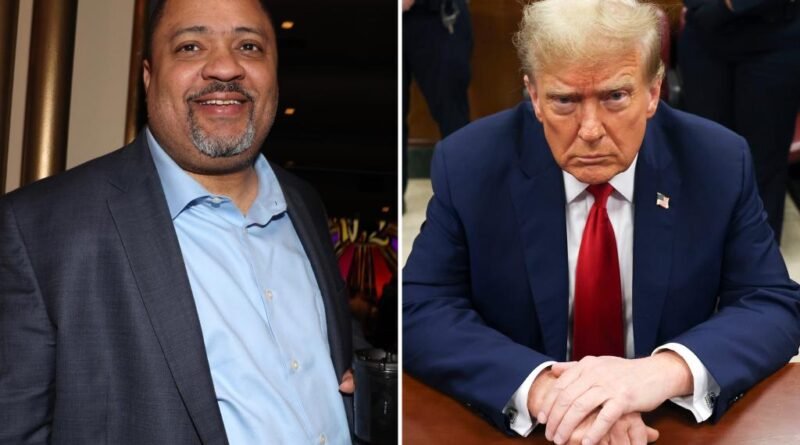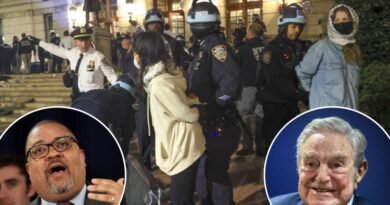After his Trump trial, Alvin Bragg just needs a crime to prosecute
Many of us in the legal community find Manhattan District Attorney Alvin Bragg’s case against former President Donald Trump to be bordering on the legally obscene – an openly political prosecution based on a theory even legal pundits dismiss. However, on Monday, the prosecution seemed to actually make a case for obscenity.
It wasn’t the gratuitous introduction of an uncharged alleged tryst with a former Playboy Bunny or expected details on the relationship with an ex-porn star. It was the criminal theory itself that seemed crafted around the obscenity standard Supreme Court Justice Potter Stewart famously described in 1984’s Jacobellis v. Ohio: “I shall not today attempt further to define [it]. . . . But I know it when I see it.”

The prosecution must show Trump falsified business records in “furtherance of another crime.” After months of confusion on just what crime underpinned the indictment, the prosecution offered a new theory so ambiguous and undefined, it would have made Justice Stewart blush.
Prosecutor Joshua Steinglass told the jury that in listing Stormy Daniels payments as a “legal expense,” Trump violated this New York law: “Any two or more persons who conspire to promote or prevent the election of any person to a public office by unlawful means and which conspiracy is acted upon by one or more of the parties thereto, shall be guilty of a misdemeanor.”
So Trump committed a crime by conspiring to unlawfully promote his own candidacy, by paying to quash a potentially embarrassing story and then reimbursing his lawyer Michael Cohen with other legal expenses.
Confused? You are not alone.
 Source link
Source link



